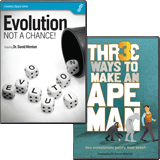What Memories Are Made Of
Special Feature: Matchless Miracle of the Mind
Our failure to remember where we parked the car isn’t necessarily a sign of senility. It shows our brain is working quite well, sorting out things that really matter in life!
“Where’d I park my car?”
Our inability to remember details can be annoying. Yet if we understand how our brain works—why it forgets some things and remembers others—we can gain a whole new appreciation for this marvel.
Many people mistakenly believe that the brain permanently stores all the information it encounters, but we just can’t always access it. In fact, we forget many things, which appear to be gone forever. And that’s a good thing!
Consider what happens if we remember too much. One famous psychology patient could remember lists of hundreds of random words without even trying, but this posed a huge problem. He had trouble forgetting anything. Even worse, he had difficulty distinguishing between useful and useless information. His brain was overloaded because he could not identify what was really important.1
God created our brains to process an unimaginably complex stream of information—trillions of bits pour into our brain every second from all our senses. As we monitor the world, our brains must discard useless details and latch onto anything of short-term or long-term value.
As we juggle the humdrum details of life, our brains may sometimes get out of kilter. In the vast majority of situations, however, even the “average” mind performs unparalleled miracles.
Not Like a Computer
As a child, I had a good memory that impressed grownups. In the sixth grade I could recite all 40 U.S. presidents in order, the years they were in office, most of the vice presidents, and their home states. Some would compliment me, “Wow, you have a memory like a computer!” As a neuroscientist, I’m happy to say that human memory is quite unlike a computer’s—and infinitely more amazing.
Unlike computers, our brains are self-organizing, self-governing, and self-repairing. The processing center doesn’t file memories in a separate place. Instead, our brain uses the same cells that store our memories to process information, and it “builds” memories by making new connections between these existing cells.

Every time you recall a memory, your brain creates a new connection between brain cells.
How is this better than a computer string of 0s and 1s? Our memories aren’t just random facts we pile up and recite on demand. Instead, our brains use our memories to help us think creatively about new situations (and even raise new questions!). We are constantly assimilating outside information and incorporating it into how we think. The memories become a part of our thoughts.
We still have much to learn about how all this works. After all, the brain contains 100 billion cells, and each neuron can form tens of thousands of connections with other neurons. (That adds up to one quadrillion connections—1015—in case you were wondering.)
Where’s My Space
Back to the example of finding your car in the parking lot.
The brain maintains a detailed map of your body as it moves in space and across time. So why do you still forget where you parked your car? The most common reason is you weren’t paying attention when you got out of the car. You were probably thinking about where you were going and forgot to glance around to register a few boundaries and landmarks.
Memories Made to Last
A critical function of the brain is to sort out what we should remember and not remember. For example, it might be helpful to remember the number of canned vegetables left in the cupboard so we don’t run out, but who cares how many cans are left on the shelf after we buy one at the store?
God designed the brain so that only some memories last. Memories are believed to go from short- to long-term memory by reinforcement. Initially, the synapses involved in a memory trace are very weak. However, with repetition or a link to strong emotions, the connections become stronger and stronger.
If you regularly park in the same general area, the connections between neurons get stronger and are easier to access next time. This explains why repetition aids learning. I learned the presidents by frequent repetition. Yet because I haven’t repeated them in a long time, I’ve forgotten some names.
More Complicated Than You Thought

When a word is “on the tip of your tongue” but you can’t recall it, this condition is called anomia.
We’ve only scratched the surface of what it takes to remember where you parked your car. You need much more than “spatial memory.” What is the color and shape of your car? What does your model of car look like in bright sun or rain, or from the rear or side? How should your eyes scan the parking lot to detect your car? How should your feet walk to your car (and follow the traffic laws so you don’t get run over)?
Simply asking, “Where’d I park my car?” requires you to draw the right words out of your vocabulary, which probably exceeds 50,000 words, and correctly apply the rules of the English language. The list goes on and on, but the brain does all this quickly and seamlessly.
How does your brain keep all this straight? For starters, it distinguishes between two main types of long-term memory. They are processed and stored very differently. Declarative memory deals with the recall of “what” (facts and events). In contrast, procedural memory deals with “how to.” Identifying your car or remembering the names of presidents is declarative memory, whereas riding a bike or swimming is procedural memory.
While we must consciously recall declarative facts, the brain typically applies procedural memory without our consciously thinking about it.
Remembering Only the Best Parts
A critical function of our brain is to sort out what we should remember and not remember.
God designed our brains so we can focus on the important things and not get lost in insignificant details. Contrary to popular belief, we do not remember every detail of every single event. That much information would be completely overwhelming. Our memories are selective. We remember only major things that we think are critical. When we try to recall the whole event, the brain pulls up major details and fills in the rest.
If it is a major event, our brains store more details. This explains why you can remember many details from terrible news, such as the death of a loved one or the 9-11 terrorist bombings at the World Trade Center. Strong emotions seem to enhance our ability to remember, and the more senses that were engaged in the experience, the more connections we have to the memory.
Sharing the Load
Through brain scans, we now believe that each memory is spread over many places in the brain. This is called the distributive model. Memory does not simply consist of individual cells storing separate facts but a shared system requiring many different neurons. One advantage of spreading out information is that, if one brain cell dies, the information is not permanently lost. Using multiple neurons alleviates this problem.
Same Scene, Different Views

When we look at a scene, such as our car sitting in the parking lot, the brain processes the information differently than when we later try to remember that scene.
Notice that the scene produces activity in the brain’s main “visual processing” center, called the primary visual cortex, located at the back of the brain. That’s where the brain combines signals from our two eyes before it stores any details in long-term memory.
When the brain later tries to recall that memory, it must go to other parts of the brain. Apparently the brain stores only the most important details and puts them with related things (for instance, people are stored in the same neighborhood as animals, not with automobiles or motorcycles).
When we try to remember a scene, our brain must piece together all the details and fill in the gaps. We don’t yet understand how this happens, but it gives humans mental powers unmatched by any computer. This massive parallel processing allows us to access hundreds of related memories and ideas, compare them, and then reach new insights.
This explains why, if you hear a song that was popular years ago, many other events from the same time period can flood your mind. When you activate the neurons for that memory, related memories are activated as well.
This system is extremely helpful. Our lives are filled with situations that aren’t identical but similar. The brain can pull up many similar memories to help us resolve new challenges quickly.
The human brain has an amazing plasticity and capacity. Plasticity refers to how the brain can change in response to new experiences to create new memories. Capacity refers to the amount of information that can be stored.
The fact that there are so many different brain regions and processes involved in the storage and retrieval of memories points to a Creator. Memory gives an advantage to those organisms that possess it, but how do you evolve this ability through gradual modification? It is only advantageous if you have a fully functional system.
Never Forget
God doesn’t want His people to forget Him or what He has done for them. It is interesting to me as a neuroscientist to see the importance that God placed on using ritual ceremonies to help us recall His grace. After He saved the first-born children during the first Passover, the Israelites were told to repeat this ceremony every year to reinforce the memory of God’s grace.
At the Lord’s Supper, Jesus established a new
ceremony: “Do this in remembrance of me.
” Every
time we partake at church, we remember His shed
blood and the first observance in the upper room
in Jerusalem. This God-ordained ceremony reinforces
our memory of God’s wondrous grace.
These religious practices involve both declarative and procedural memories. Since more senses are involved, the brain is more engaged and more likely to maintain the memory of Christ’s wondrous grace. God, who made our brains, knew what He was doing when He implemented these ceremonies!
Throughout our lives, He wants us to focus our minds and affections on “things above,” filling our minds with good things (Colossians 3:2; Philippians 4:8). God designed the brain’s synapses to help us by literally reinforcing our memories when we meditate on truly important things. Just think about that the next time you can’t find your car!
Answers Magazine
July – September 2013
To say that the human brain is more amazing than a computer misses the point. We now know that it’s nothing like a computer— and far more powerful! In this issue of Answers you’ll learn why a computer will never match the human brain. Also, discover why the big bang is a theory in crisis, what the Bible says about women in combat, and much more!
Browse Issue SubscribeFootnotes
- See A. R. Luria, The Mind of a Mnemonist, trans. Lynn Solotaroff (New York: Basic Books, 1968).
Recommended Resources

Answers in Genesis is an apologetics ministry, dedicated to helping Christians defend their faith and proclaim the good news of Jesus Christ.
- Customer Service 800.778.3390
- © 2025 Answers in Genesis






